Did you know that some of the world's top security guards earn more than the average surgeon? This isn't your typical nightshift gig; it’s an industry on the verge of a massive transformation.
Security services are undergoing rapid change due to advanced technology and rising safety concerns worldwide. But wait until you hear what's coming — it could redefine the way we think about personal safety forever.
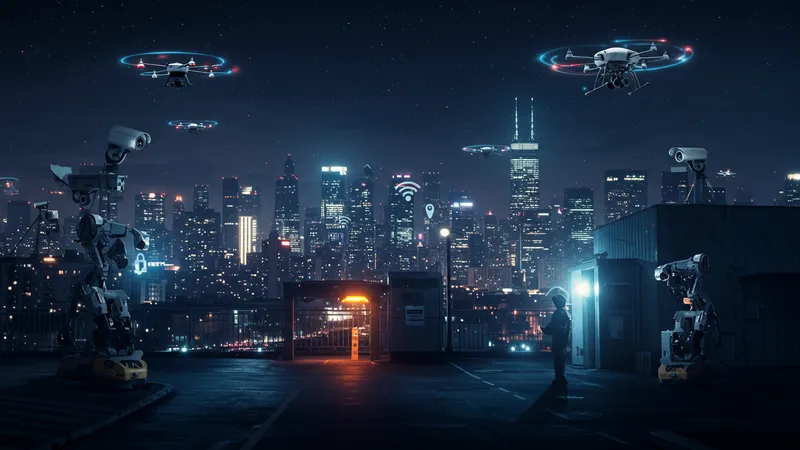
In an unexpected twist, security guards are becoming tech-savvy experts, more akin to cybersecurity specialists than mere protectors. It's a profession where a basic guard uniform might be replaced by high-tech uniforms equipped with infrared cameras and biometric scanners. But that’s not even the wildest part…
Certain enterprises are now training guards in psychological profiling as part of their standard operations. This strategic shift not only enhances safety but also elevates the role of security from a traditional watchdog to that of a frontline safety strategist. And this isn't just a corporate endeavor; residential areas are catching on to the trend, and how! But what happens next shocked even the experts…
As the world becomes increasingly reliant on technology, the demand for tech-equipped security guards is surging. Companies are investing heavily in this area, recognizing that a simple alarm system is no longer sufficient. In fact, demand for security services has increased by 35% in the past year alone - a staggering statistic that underscores the growing importance of advanced security measures. But there’s one more twist…
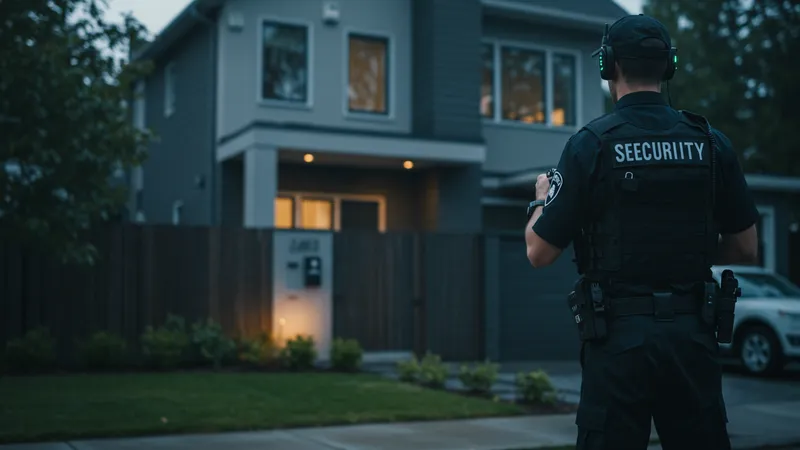
Meanwhile, in residential sectors, a new trend is taking shape with unprecedented speed. Homeowners are now recruiting personal security teams tailored to their unique needs, turning their homes into fortresses. What was once reserved for celebrities and elites is now being adopted by middle-class families. But what you read next might change how you see this forever.
The surprise doesn’t end there. Some security companies are innovating with bio-signal monitors, allowing guards to track physiological signs of stress or anxiety in crowds. Striking a balance between privacy concerns and safety, this technology is both a boon and a bane, drawing debate amongst security experts. But the real shocker is yet to come...
It turns out that the evolving role of security guards is not just limited to who they are or what gadgets they wield. New regulations are being discussed, which could potentially redefine their legal rights and responsibilities. Guardians of the public eye, they might soon wield more authority than many anticipate. Brace yourself for more revelations...
With all these technological leaps, you might expect traditional training methods for guards to be outdated. On the contrary, they’re evolving faster than ever to include modules on IT and crisis negotiation, equipping guards with a toolkit that's impressively modern and efficient. They are trained to manage situations that were once solely the domain of cyber teams. But there’s an even more fascinating element to this transformation…

Imagine this: Security guards are now also trained by former military personnel to ensure knowledge is grounded in real-world experience. This is reshaping the guard industry and elevating the level of service provided. From tactical defense to psychological operations, these guards are anything but ordinary. But the next revelation might astound you…
Forward-thinking enterprises are even offering virtual reality modules to simulate real-life scenarios, providing immersive experiences that traditional classroom settings just can't replicate. Guards are now more prepared for unforeseen events than ever before. This innovation not only boosts morale but also significantly reduces turnover rates. Yet, there's one fact that trumps these innovations...
Beyond tech and training, there’s a growing sector of ultra-specialist guards with expertise in niche areas such as NFTs and digital currencies. Guarding virtual assets is becoming paramount, with skills honed specifically for sectors that most people never imagined would require physical security. All these developments are leading to a place few could have predicted...
The financial ramifications of this security renaissance cannot be overstated. With companies channeling more resources into advanced security measures, markets are seeing shifts in employment and investment trends. Entire sectors are blooming as security demands ripple through various industries. But there's a critical development…it’s setting new economic precedents.
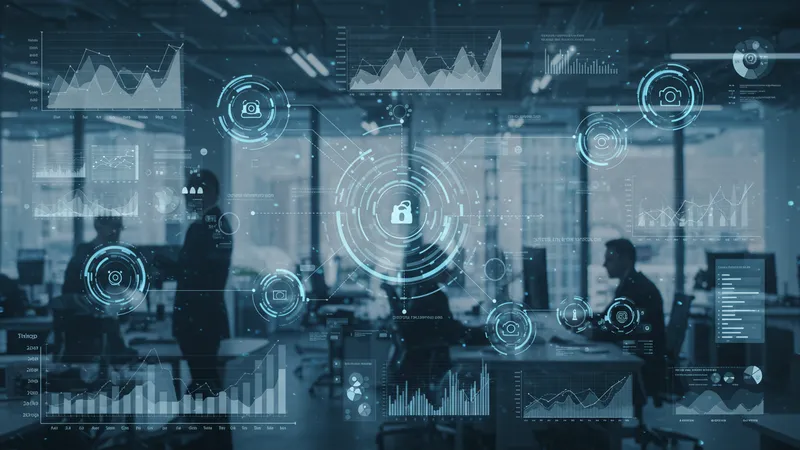
Firms are reporting significant reductions in theft and loss, with some claiming a 20% drop. Insurance companies, often cautious players, are recognizing these benefits, leading to lower premiums for businesses that invest in state-of-the-art security solutions. However, there's another twist in the tale…
On the other hand, the increased security spend spurs debate about the balance between cost and safety. Smaller enterprises struggle to keep up with these rapid advancements, facing tough decisions about investing in such technologies. It’s a complex dynamic with profound implications for global markets. But the story is far from over…
The interconnected nature of today’s markets means innovations in security not only protect assets but also encourage economic growth. With more businesses investing in robust protection, the proverbial pie is expanding, creating a wealth of opportunity in tech development, training institutes, and beyond. What this means for the future will stir your curiosity further...
In today's complex world, modern guards must possess a psychological acumen that transcends traditional training. They tap into understanding human behavior, employing skills akin to those of psychologists. This evolution has not only increased their effectiveness but also demands a deeper look into the psyche behind security. Yet, that’s not all there is to this facet…

The psychological advantage allows guards to manage tense situations proactively, preventing potential crises from escalating. With insights into emotional intelligence and stress management, these guards often defuse incidents that, without their skill, could spiral uncontrollably. It’s redefining public interactions altogether. And there’s more…
New courses are being introduced, blending psychology with high-pressure scenario simulations, preparing guards to handle the mental demands of the job. In urban environments particularly, this psychological preparedness is proving invaluable. The stats aren’t yet mainstream, but what’s been documented is promising. However, more surprises await…
It’s now recognized that guards with psychological training not only protect physical spaces but also contribute to a more positive public perception of safety workers. It’s a game-changer with far-reaching effects for community trust and engagement. This transformation in societal roles is shaking the very foundation of how we view traditional security forces...
The secret arsenal at the disposal of modern security guards is both impressive and ever-expanding. With products like biometric scanners and facial recognition software, these guards are no longer reliant on intuition alone. Each tool is part of a vast operation to keep environments secure. But there’s an entire suite of tools you might not expect…
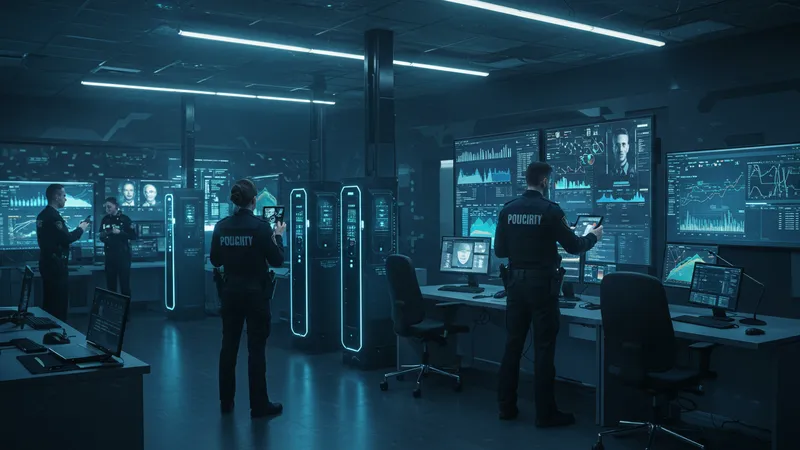
The innovation of real-time data sharing through secured apps is revolutionizing communication. Security teams can instantly share information about potential threats, enhancing response times significantly. This isn’t just a tech upgrade; it’s changing the efficiency with which situations are handled. And the list of advancements goes on…
With drones for aerial surveillance and robotic patrol partners, security teams are multiplying their presence exponentially. Automation isn’t just a theory anymore; it’s actively being employed on field duty. Guards equipped with AR glasses for virtual overlays add to their formidable capabilities. Yet, even these tools are merely the beginning…
Equally surprising are the non-tech tools coming into play. A rise in alternative conflict resolution methods using negotiation and diplomacy reflects a shift towards a more nuanced approach to security. With these developments, security situations often end peacefully, providing a much-needed alternative to force-driven resolutions. Still, the full extent of these tools will surprise you...
As security practices advance, ethical debates are rapidly emerging regarding privacy and consent. The ability to monitor anyone, anytime, has opened Pandora’s box, raising questions about the oversight of such power. The ramifications are profound, with regulators scrambling to catch up. But the discussion is far from black and white…
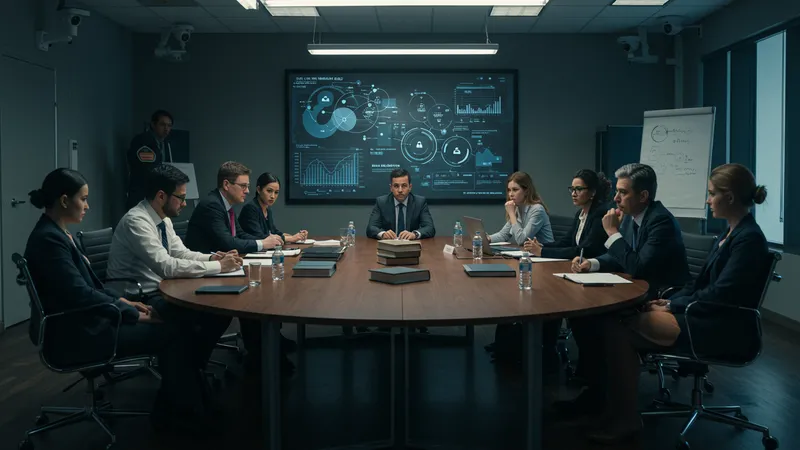
While many advocate for robust oversight to prevent misuse, others point out the potential benefits highlighted by improved safety statistics. Schools with enhanced monitoring report fewer incidents, contributing to a renewed sense of community safety. The balancing act between privacy and security intensifies. But a new perspective awaits consideration…
Some argue the technology that is ostensibly used for protection could be weaponized against personal privacy. Real-world examples urge discernment in application to ensure the protection of civil liberties. This delicate dance between beneficial use and potential abuse provides fertile ground for heated debate amongst policymakers. Yet, more awaits exploration…
The future of security technology is not set in stone and hinges on how we address these ethical dilemmas. Transparent dialogue, cross-disciplinary panels, and inclusive policymaking are crucial to navigate the moral landscape accompanying these technological advancements. The next chapter of this evolution might surprise you…
Women are playing an increasingly pivotal role in what was once a male-dominated industry. Their presence brings a unique perspective to security challenges, often rooted in increased empathy and nuanced communication. It’s a shift marking significant progress. But there’s an even greater narrative unfolding…

Women are not only filling positions; they’re excelling by bringing innovative strategies to the table. From leading security firms to redefining frontline roles, the female touch is redefining the paradigm of security’s masculine legacy. A powerful movement is underway, driving both gender equality and professional excellence. Yet, there’s a twist in this tale…
The influx of women into the security workforce has also led to changes in workplace culture. Organizations are observing shifts in teamwork dynamics and decision-making processes, contributing to a more inclusive environment. This transformation is paving the way for broader diversity across all tiers of the industry. But the far-reaching repercussions are just beginning to be seen…
The increasing involvement of women has resulted in policies more attuned to nuanced security issues, diversifying the approaches to community interaction and crisis management. As women continue to elevate the standards and scope of security roles, the ripple effect on policy, practice, and perception continues to grow, and what happens next may redefine the future of security…
Despite significant advancements, the security industry faces substantial challenges, including the rapid evolution of technology, economic pressures, and ever-changing threat landscapes. These hurdles demand a proactive and dynamic approach. However, the industry’s response has been both innovative and empowering. But that’s only part of the story…

The shortage of skilled security personnel exacerbates the existing issues. As technology evolves, the gap between needed and available skills widens, pushing organizations to revamp their training and recruitment strategies. Yet another facet persists underneath the surface…
There are financial constraints as businesses struggle to balance high-tech security investments with profitability. This demanding economic climate forces innovation but also limits the reach of security improvements, especially for smaller businesses. Despite these setbacks, the industry is poised to leap forward. This evolution bears a significant, unexpected twist…
Technologically and strategically, solutions are emerging that promise to address these challenges. From innovative funding models to cutting-edge training methods, the industry is adapting in remarkable ways. These changes are heralding a new era of versatile, holistic security practices that could redefine safety standards worldwide. There’s more on the horizon…
Global events like pandemics, natural disasters, and geopolitical tensions continually impact the security landscape. These situations demand rapid adaptation from security teams worldwide to address unprecedented challenges. The agility exhibited has been commendable, highlighting both the resilience and necessity of robust security measures. However, this is just the surface…
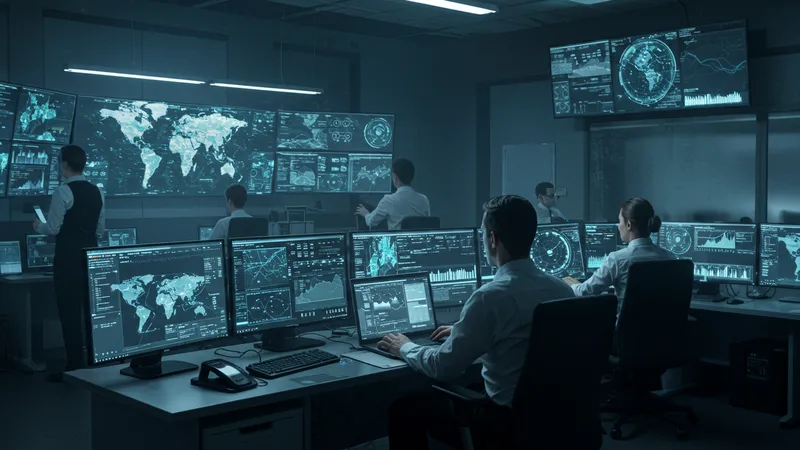
The pandemic, in particular, forced a reevaluation of security protocols, with a shift towards contactless technology and virtual monitoring. This change illuminated vulnerabilities in existing systems and spurred a technological overhaul across sectors. The broader implications span much further than any one event…
Economic disruptions from global events have underscored the importance of security as a cornerstone of stability. Industries reliant on global supply chains have turned to enhanced security measures to safeguard their operations. This shift emphasizes the crucial role security plays in the broader economic ecosystem. Yet, there’s more depth to unfold…
These events continue to influence security trends and developments, expanding risk management strategies and broadening the scope of traditional security roles. As the world braces for future uncertainties, the role of security will only deepen, carving out a new path that many have yet to fully anticipate…
The future of security guards is poised for a dramatic evolution. As technology and societal expectations converge, the scope, tools, and training of security personnel are transforming in ways previously considered science fiction. Guards of the future will be tech-savvy, culturally aware, and strategically agile. Yet, the revolution extends beyond simply meeting these benchmarks…
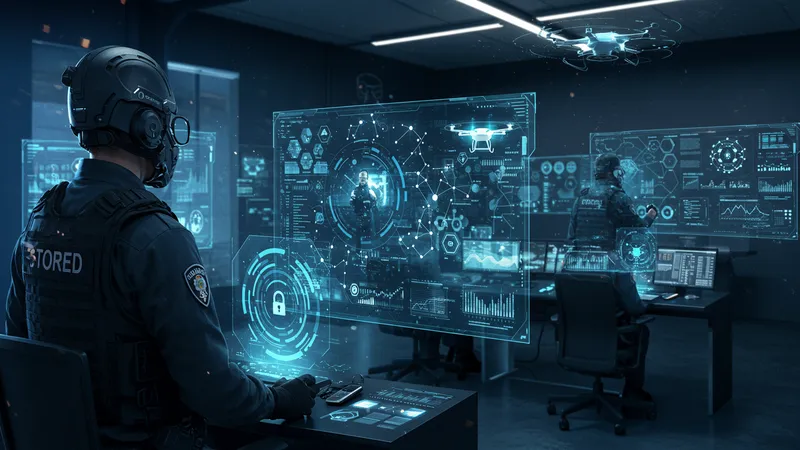
Emerging technologies like AI, IoT, and blockchain are set to redefine security roles, blending traditional duties with innovative tech-driven responsibilities. The seamless integration of these technologies will demand continuous learning and rapid adaptation. Furthermore, there's an element unfolding that could shift perspectives entirely…
As security guards embrace futuristic tools and responsibilities, there's an anticipation of a shift from reactive to proactive security. The ability to anticipate rather than respond could dramatically enhance effectiveness, offering unprecedented protection levels. The merger of technology and strategy in this sector is poised to effect profound change. Yet, more transformative insights are on the horizon…
The paradigm shift further extends to crafting roles that are not only protective but also integrative, embedding security deeper into the fabric of everyday life. As technology advances, the evolution will continue to shape the landscape in unforeseen ways, promising a secure world that's fundamentally interconnected. The future holds dynamic revelations beyond what we’ve yet imagined…
As we delve into the dramatic changes within the security guard industry, we've just begun to scratch the surface of what promises to be a revolutionary transformation. From technological advancements to societal shifts, security as we know it is being redefined. But what does this mean for the future of safety and order in our everyday lives?
Engage with us by sharing your thoughts, subscribing to updates, and staying informed. Our journey through the evolving world of security is just beginning, offering insights and developments that are sure to intrigue and astonish. Keep your eyes peeled for what's next, and ensure you remain ahead of the curve in this groundbreaking field.